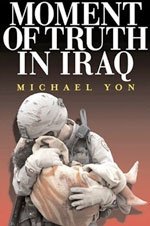 After taking command in 2007, General David Petraus wrote a letter on “Values” to all of his soldiers.
After taking command in 2007, General David Petraus wrote a letter on “Values” to all of his soldiers.
“Our values and the laws governing warfare teach us to respect human dignity, maintain our integrity, and do what is right. Adherence to our values distinguishes us from our enemy. This fight depends on securing the population, which must understand that we–not our enemies–occupy the moral high ground…..
“Some may argue that we would be more effective if we sanctioned torture or other expedient methods to obtain information from the enemy. They would be wrong. Beyond the basic fact that such actions are illegal, history shows that they also are frequently neither useful nor necessary….
“In everything we do, we must observe the standards and values that dictate that we treat noncombatants and detainees with dignity and respect. While we are warriors, we are also human beings.”
Sounds good–but does it work? Yes, it does. Michael Yon shows that over and over in his book, “Moment of Truth in Iraq.”
Early on, the American military tried to impose its will with brute force, the idea that, “All these people understand is force.” That didn’t work in Vietnam, and it didn’t work in Iraq. The Special Forces people, and men like David Petraus, knew that heavy-handedness would fail and only serve to recruit more insurgents. But the people in charge at the beginning, both civilian and conventional military commanders, didn’t “get it.”
Petraus instituted what Yon describes as a “value driven counter-insurgency.” He writes:
“Some think all of this talk of values is a sign of weakness. But in a counterinsurgency, our greatest resource is not the overwhelming firepower we can bring to bear upon the enemy, or the high technology we can use to locate and identify him. Our most powerful weapon is our values.” In a counterinsurgency, he says, “The superior fighting force occupying the moral high ground holds a commanding position.”





